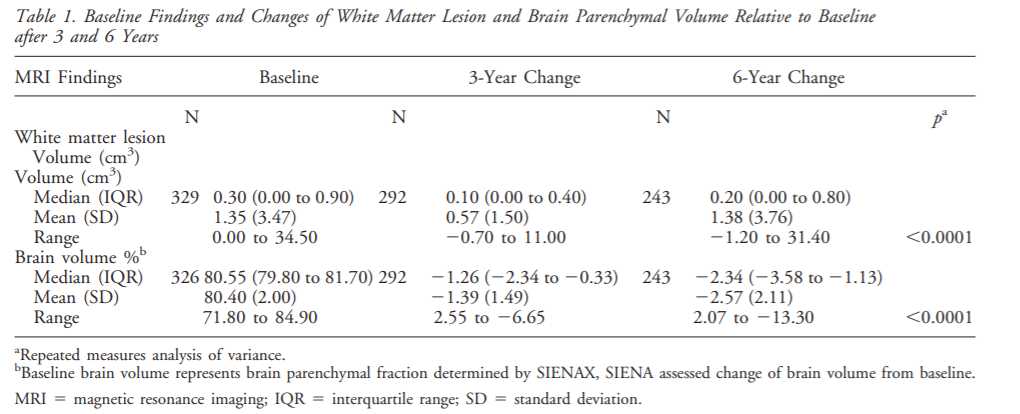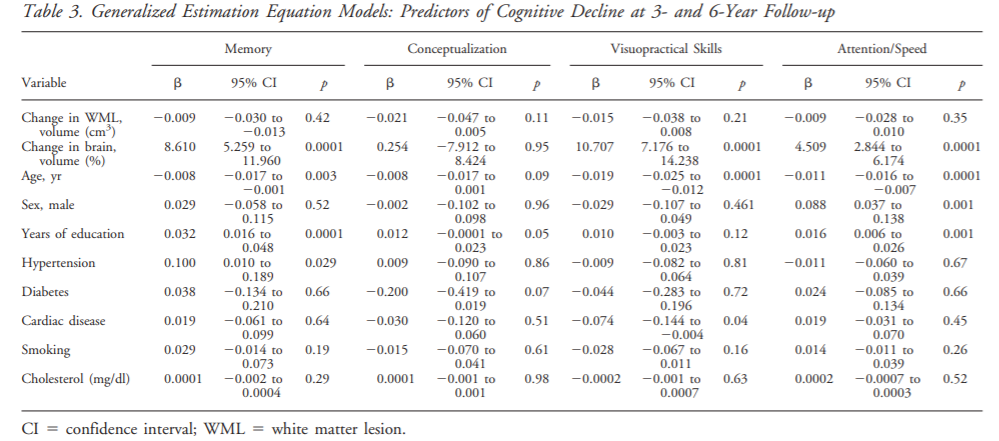R & D platform
-
Industrial Production
-
Mechanism Study
-
Clinical Research
White matter lesion progression, brain atrophy, and cognitive decline: The Austrian stroke prevention study
This study evaluated the effects of lesion progression on brain volume and cognitive functioning in 329 participants of the Austrian Stroke Prevention Study who underwent serial MRI scanning and neuropsychological testing during 6 years of follow‐up.
In brief, 2,007 subjects aged 50 to 75 years without neuropsychiatric disease were recruited, with 509 randomly selected participants undergoing MRI, cognitive testing, and cardiovascular risk factor assessment at baseline. Follow‐up examinations at 3 and 6 years followed identical protocols. A total of 329 subjects underwent MRI and neuropsychological testing at baseline and had at least one follow‐up examination. Two hundred ninety‐two participants had a 3‐year follow‐up and 243 subjects a 6‐year follow‐up, with 201 individuals having scans and neuropsychological testing at all three time points. These were 161 women and 168 men. Their mean age was 60.2 ± 6.3 years and the length of education was 11.6 ± 2.9 years.
Over the 6‐year follow‐up period, the overall increase in white matter lesion volume and loss of brain volume for the group was small but statistically significant. However, the longitudinal changes varied greatly between subjects

Progression of white matter lesion volume and brain parenchymal loss were significantly associated with declining performance in tasks assessing memory, conceptualization, and visuopractical skills (Table 2). When including both white matter lesion volume change and percentage change of brain volume in these models, the associations between white matter lesion progression and changes in cognitive functioning were no longer significant. Other than higher age and fewer years of education, brain volume loss was the strongest predictor of decline in mnestic, visuopractical, and attention/speed performance.


This study in community‐dwelling elderly subjects without previous strokes and dementia demonstrated that progression of white matter lesion volume relates to brain parenchymal loss and to decline in performance on cognitive tests of memory, conceptualization, and visuopractical skills.Our results are consistent with findings of the Cardiovascular Health Study, which also showed that white matter lesion progression cannot be considered benign[1]
References
[1] White matter lesion progression, brain atrophy, and cognitive decline: The Austrian stroke prevention study. Ann Neurol. 2005. 58(4): 610-616.


